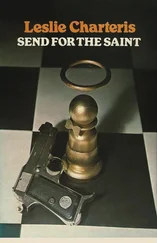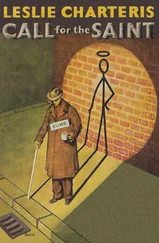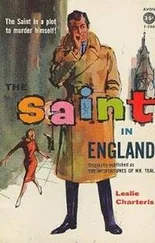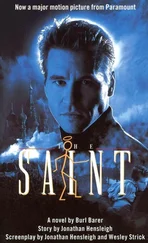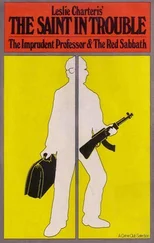IV: How Inspector Lebec introduced Himself, and Captain Finnegan accepted Coffee
The Marseille harbourmaster was regretful but definite.
“No, Monsieur. There has been no such vessel in the Marina here during the last two months.” He stabbed a broad sunburned hand at the record-book that lay open on his desk. “You see — in July, she left her berth here, without disclosing any destination.” He shrugged. “We have no powers to require that, you understand. Perhaps Cannes, or Nice, or San Tropez. I am sorry, but the yacht Phoenix is nowhere in the port of Marseille.”
It had been Simon’s idea to get out of the way while Arabella was completing her re-sanitisation in the hotel. During the latter part of the drive from the haras after their hurried escape, she had already sketched in the missing details for him, as much as she had gleaned from the solicitor. That included her current financial status and absolute need to sell a yacht whose existence she had hitherto never even suspected. And the obvious first step for the Saint had been to go out and find that yacht, the more so as he had also been told about Charles Tatenor’s twice-yearly disappearances followed by periods of evident renewed solvency. Fairly obviously, there might well be a link between the Phoenix and those regular and lucrative vanishing acts.
The immediate problem now was to locate the Phoenix. And that was a task which the harbourmaster’s negative news did nothing to simplify.
Simon Templar’s mind was thoughtfully absorbed with this new and unforeseen problem as he made his way back to the hotel, and he had parked his car and almost reached the hotel entrance before he saw Arabella’s MG. It was at the kerbside behind a police car, and Arabella herself was standing beside it looking decidedly fetching in some of her new clothes. She was not alone; there were three men with her. One was instantly recognisable as a uniformed policeman, and the other two were just as instantly recognisable as plainclothes policemen. The taller of these possessed a shock of white hair and the shorter an air of relative seniority. Some photographs were spread out on the low roof of Arabella’s car, and the senior-looking policeman was speaking.
“... and all of these five men, Madame, including your husband, were involved in the theft of valuable cargo passing from Marseille to Morocco...”
“About five million dollars’ worth of gold bars, wasn’t it?” said the Saint chattily as he ambled up to join the group.
The speaker turned, and looked at Simon with almost transparent fishlike grey-green eyes in a face that was alert yet slightly pudgy. His mouth had that peculiarly Gallic impassivity which, it is said, is conferred only by long years of drinking pastis and pretending to like it.
“I am Inspector Gerard Lebec,” he said rapidly. “And you — you would be Monsieur Simon Templar — who has travelled here with this lady to find that gold.”
“No!” Arabella protested. “We didn’t even travel together. And we don’t know about any gold. At least, I don’t...”
Her voice trailed off, and Lebec pounced on the note of uncertainty.
“You perhaps do not, Madame. But Mr Templar knows — oh yes, he knows! Are you aware, Madame Tatenor, that there was a sixth man in the stealing of that gold?”
Arabella shook her head slowly.
“I didn’t even know there were five... I mean until recently I’d never heard of the robbery at all.”
“Ah, but yes.” Lebec turned the cold transparent eyes on the Saint again while continuing to address his remarks ostensibly to Arabella. “He was, it is said, a man working on the Moroccan side, and known only to your husband.”
“Yes, Inspector,” Simon said with good-humoured patience. “I have been to Morocco.”
“And would it not be this man number six,” Lebec persisted, “who murdered your husband at the boat race... supposing it to have been murder?”
“Yes, Inspector,” the Saint put in, “I was in that boat race.”
Arabella glanced from Simon to Lebec and back to Simon.
“This is nonsense — isn’t it?” she said to Simon. And then to Lebec: “I happen to admire and trust Mr Templar very much... At least, I think I do.”
Lebec’s lips curled in contempt, as again he looked at Simon but spoke to Arabella.
“Your own Scotland Yard does not share your confidence. Nor do we, nor Interpol nor half the police forces of the world.”
Simon smiled his most impudent police-baiting smile.
“With my first conviction coming here and now, I take it?”
At that Lebec’s manner froze over completely. He made a point of bowing curtly to Arabella and not looking further at the Saint.
“I may wish to interview you again,” he told her. “Meanwhile you will both please not to depart Marseille without my permission. Au revoir, Madame.”
He gestured to his tall white-haired colleague and the uniformed man with a crisp “Allons” and they drove off in the police car, leaving Arabella looking decidedly thoughtful.
It was clear that Lebec’s words had refuelled her uncertainties, if not exactly suspicions, about the Saint’s own interest in the affair of the gold — which, infuriatingly to her, everyone seemed to know about with the exception of herself.
She told him that the police had found her car abandoned on the main road outside the village, and that the papers they found in it had eventually enabled them to trace her through the hotel registration. Then she asked, almost absent-mindedly:
“Did you find the Phoenix?”
Simon told her the harbourmaster’s bad news. But it had less impact on her than expected. She had been through enough of a shock to her way of life recently, he supposed; she was almost resigned to expecting that things would go wrong at every turn.
“But it has to be there,” she said without much conviction. “I mean, that’s the only reason I’m... Anyway, how do you know all about the bullion and these men, and Charles, and all?”
“I have a friend in high places,” he said. “And that’s the truth.”
Later, more from a need of breathing-space than in any positive hope of locating the elusive Phoenix, they wandered along by the magnificent private-yacht harbour in the dying sunshine of a matchless September evening.
“I don’t even know what she looks like,” Arabella lamented. “It seems quite hopeless, doesn’t it? Anyway, we can surely believe the harbourmaster if he says she’s not here. Or is he involved too?” She eyed the Saint quizzically. “Maybe you think he’s the sixth man.”
“Stranger things have happened,” said the Saint, whose thoughts at the time, if the truth be told, were mostly preoccupied with the logistics of making himself and Arabella vanish at the right moment from the sight of the tall white-haired shadow who had been lurking at a not quite discreet enough distance behind them since the start of the evening’s expedition.
It was not that Simon Templar had any immediate plans to get up to anything nefarious, or which he would otherwise not wish Inspector Lebec or one of Lebec’s men to observe. But the Saint did have a rooted dislike of being followed about.
Doubtless there exists, in some shadier nook or cranny of Whitehall’s less public departments, or their equivalents in other countries, an official but restricted manual codifying the various available manoeuvres for shaking off a professional shadow; and it may be that item 17.3 b/l therein treats of the timely interposition of visually obstructive obstacles and of making a rapid alteration of pedestrian course under cover of such an obstacle. But to the Saint’s thought processes, which dealt with the world in as direct and tangible a way as they could, it was a simple, enjoyable and uncluttered matter. You waited till something got in the way between you and the shadow, and then you dodged off niftily in the opposite direction. Ideally, to complete the enjoyment you then found a vantage point from which you could watch the shadow stumble around scratching his head, wondering where on earth you had vanished to.
Читать дальше


